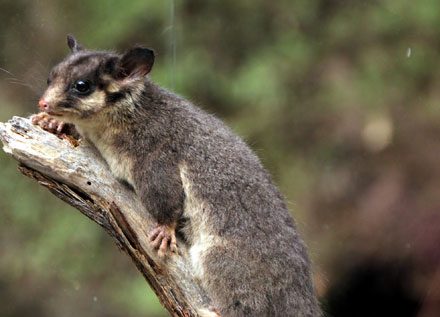
Exemptions allowing logging to occur in Australia’s native forests without approval under federal environmental law are being challenged in court as lawyers claim the agreements creating them are not being adhered to in an area of Victoria. Source: The Guardian
The case, brought by Environmental Justice Australia (EJA) on behalf of Friends of Leadbeater’s Possum, could have national implications, with other groups raising similar concerns around the country.
Australia’s 10 regional forestry agreements (RFAs) in Victoria, Tasmania, New South Wales and Western Australia were signed between 1997 and 2001, each running for 20 years.
The agreements between state and federal governments mean proposals to log in designated native forests are not required to be approved through the usual federal process, under the Environmental Protection and Biodiversity Conservation Act (EPBC).
They were seen by many as a historic peace deal that attempted to preserve conservation values while allowing the forestry industry continued access to native trees.
But the agreements require performance reviews to be conducted every five years.
EJA will argue that since those reviews have not been undertaken in Victoria, some logging in the forests covered by the Central Highlands RFA, which threatens Greater gliders and Leadbeater’s possums must gain approval under the EPBC, which has not occurred.
The Victorian Central Highlands RFA was signed in March 1998. But over the 19-year period, the Victorian and federal governments say they have done just one review, which examined the period to 2009 and was completed in 2015.
An EJA lawyer, Danya Jacobs, said the case asked the court to prohibit logging at 34 sites where Greater gliders and Leadbeater’s possums live, unless federal environment laws were complied with.
Logging in those forests is a major threat to the species, both of which are listed as threatened by both state and federal governments.
“The native forest logging industry has operated as if it’s exempt from federal environment law for almost 20 years, on the basis of agreements that have not been complied with,” Jacobs said.
“This case asks the court to examine this situation in specific forests that are home to iconic threatened species that are suffering because of logging.”
VicForests agreed to immediately halt logging at two sites named in the claim until Friday, when an urgent hearing of an injunction application may take place.
Nathan Trushell, chief executive of the state-owned commercial logging company, VicForests, said they believed their operations were in accordance with the Regional Forest Agreement.
“Prior to harvesting, a thorough, multi-layered planning process is undertaken to consider the management of many environmental and other values present in the forest,” Trushell said.
“We are keen to see the matter resolved as quickly as possible to minimise disruption of timber supply to local mills and important regional jobs.”
A detailed review of RFAs, conducted in 2016 by the National Parks Association of NSW, concluded the agreements failed in all their aims, the logging of native forests they facilitated resulting in an increase in the number of threatened species.
Lead author of the report, senior ecologist at the National Parks Association of NSW Oisin Sweeney, said the court case in Victoria would be carefully watched around the country and could have major implications for other RFAs.
“It’s absolutely relevant in NSW,” Sweeney said. “We have had the first five-yearly report. It was produced in the ninth year of the RFA. So it was several years late. We still haven’t had the 10 and 15 years reports even though we’re 18 years into the RFA.”
The logging allowed by the RFAs in NSW has been destroying habitat of koalas there.
A report released in May by the NSW Environmental Protection Agency found that all koala populations in NSW, with one possible exception, have continued to decline, with at least one population now considered endangered.
In August, the first RFA in the country was rolled over, with an agreement signed between the Tasmanian and federal government.





